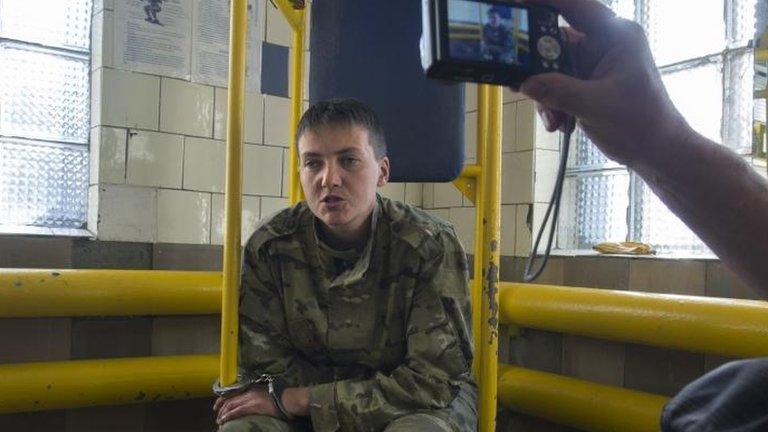Nadia Savchenko: Anger and defiance at Russia trial delay
- Published
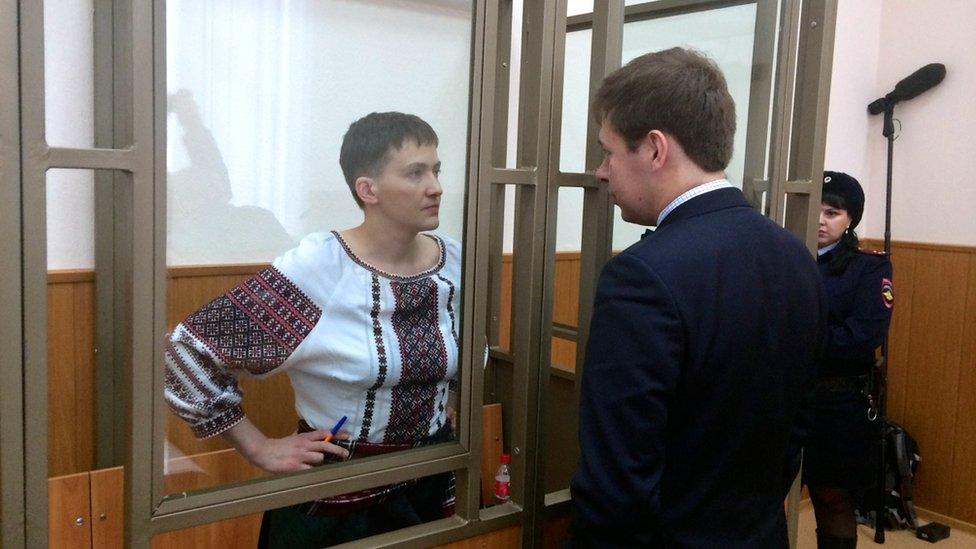
Nadia Savchenko has worn traditional Ukrainian dress in the Russian court
After more than five months on trial in this drab border town, Nadia Savchenko was expecting the main proceedings to end this week.
Instead the Ukrainian military officer has declared a hunger strike from Friday in protest at an unexplained delay.
She's refused solid food before, for weeks at a stretch. This time she's also vowed to refuse liquids in an attempt to force a resolution to her case and return home.
Ms Savchenko launched her protest after the judges adjourned the trial abruptly until next week, without calling for her closing speech.
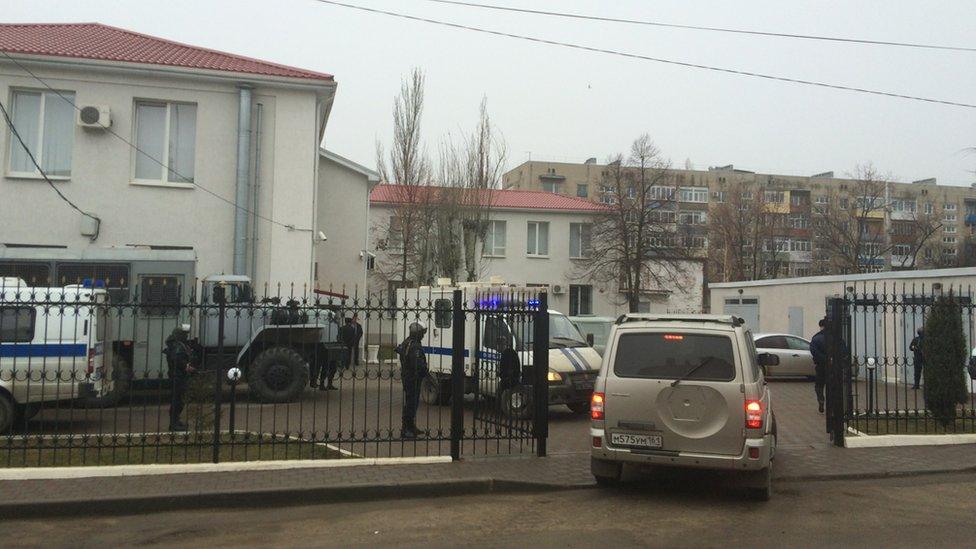
The trial is taking place in the Russian town of Donetsk, near the Ukrainian border
As armed men in balaclavas cleared the court, Nadia Savchenko yelled from her metal cage that she was "fed up" of Russian justice but insisted her spirit would not be broken "even if they kill me".
It was a dramatic twist in a long-running controversy which began when she was captured by pro-Russian rebels in eastern Ukraine, just across the border from the courthouse.
She says her captors smuggled her into Russia a week later. The prosecution claim she crossed illegally by herself, but can't explain why.
Summing-up this week, prosecutors told the judges that they have "established objectively" and "'beyond doubt" that in June 2014, Nadia Savchenko was directing artillery fire for a Ukrainian volunteer battalion.
They claim that she targeted a group of civilians, motivated by hatred for Russia after it annexed Crimea.
Two Russian state TV journalists were killed, at a time when clashes between Russian-backed rebels and Ukrainian forces were at their height.
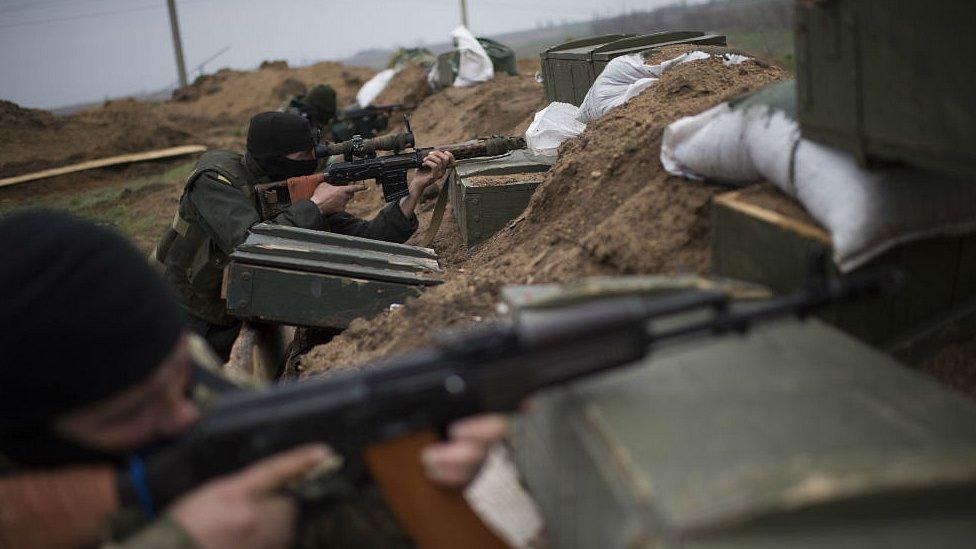
Nadia Savchenko was captured during fierce fighting in eastern Ukraine
But defence lawyers say Nadia Savchenko had nothing to do with that strike. They have presented mobile phone records that suggest she had already been captured when the Russians were killed.
"Our evidence shows it happened between 11:40 and 12:00," Ilya Novikov told the panel of judges, listening intently but utterly expressionless.
And yet at 10:44, Nadia Savchenko's mobile phone signal was picked up far from the artillery strike, in rebel-held central Lugansk.
The lawyers point to other evidence, including the location of shadows on video footage to confirm that.
The prosecution produced rebel fighters to testify that Savchenko was captured after the shelling, but they were vague or contradictory on most other details.
So the defence argue that this case is a show trial, with a guilty verdict guaranteed.
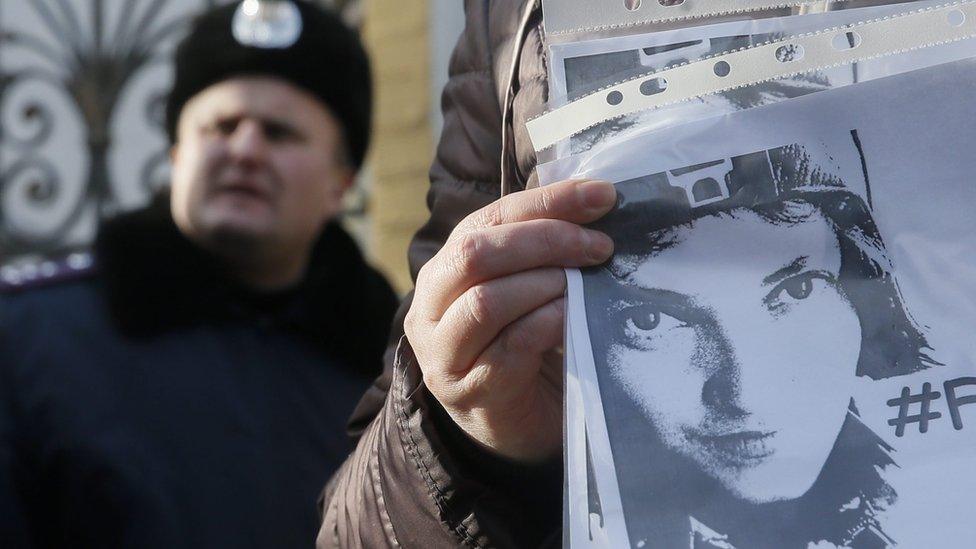
Nadia Savchenko has become a symbol of defiance back in Ukraine
"An attorney usually tries to reduce the sentence for a client. But for us 23 years or five makes no difference," Mr Novikov said.
"We're convinced her release depends on political efforts," he said, explaining that the team is pushing for a prisoner swap, negotiated between Moscow and Kiev.
During the hearings, Nadia Savchenko followed closely, leaping up from time to time to object loudly. She mocked the prosecutors across the room, accusing them of lies and distortion.
But her full anger was only released when she was denied her right to a final speech.
Her younger sister released the statement later on Facebook, declaring Russia a "Third World country with a totalitarian regime... where they don't care about human rights or international law".
"We don't know what's going on," Vira admitted, concerned that the final verdict will now be delayed too.
"I'm scared that Nadia wants to go on hunger strike. Because you can't live long without water," she said.
She will try to persuade her to call off her protest on a prison visit later on Friday.
But Nadia Savchenko says she has had enough of Russian justice. So by taking this extreme step, she is trying to force events to a speedier end.
- Published13 July 2015
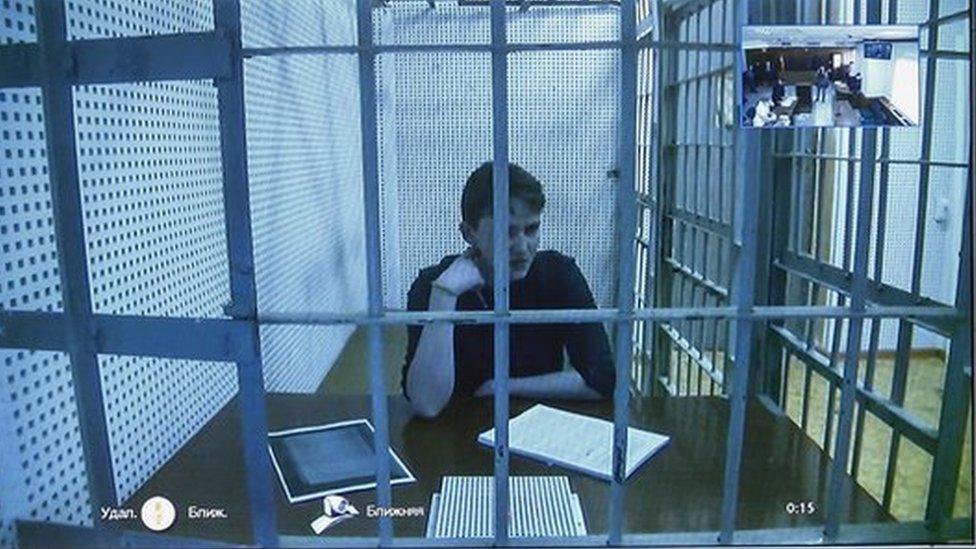
- Published5 March 2015
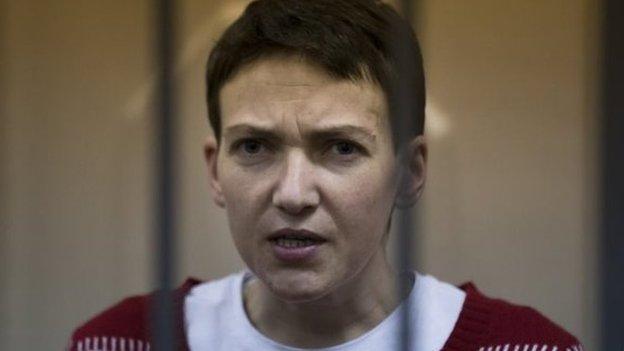
- Published13 February 2015
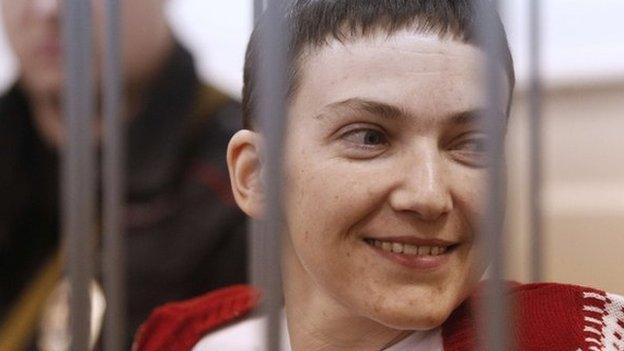
- Published10 July 2014
